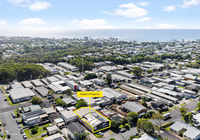
Office tower values could tumble 20pc further: survey
Higher interest rates and softer demand – exacerbated by the persistence of the work-from-home trend – could send some office building values tumbling another 20 per cent lower, according to a survey of analysts and economists by The Australian Financial Review.
While all commercial property classes will be exposed to higher rates and bond yields – the 10-year government bond yield is a key determinant for commercial real valuations – the office sector was seen as most vulnerable, according to the panel of nine experts.
Most exposed were the lower-grade office towers, as tenants take advantage of the weaker market to secure higher-amenity accommodation.
“The higher-for-longer interest rate cycle, combined with the working-from-home pandemic impact, are weighing heavily on the office sector,” Barrenjoey chief economist Jo Masters said.
Ms Masters had the most bearish outlook among survey respondents, predicting that office valuations would fall another 20 per cent in the portfolios of ASX-listed landlords.
“We continue to see second-tier assets bearing the brunt of this; indeed, it is encouraging to see rents rising in premium rents in Sydney and Brisbane,” she said.
Portfolio values overall for office towers held by ASX-listed property players fell about 6 per cent for the June half, taking the 12-month decline to 7.9 per cent so far, according to Morgan Stanley analysts.
Prime CBD office values
Across the commercial sector, asset values held by listed landlords could drop anywhere between 17 per cent and 33 per cent if their requisite yields – known as capitalisation rates – were to rise in line with their 15- to 20-year average above the Australian 10-year bond yield, the analysis wrote in a client note last month.
Also among the office bears was Oxford Economics senior economist Maree Kilroy, who expects a 17 per cent slide in prime CBD office values in Sydney.
“A bigger decline is projected for Melbourne CBD, 21.5 per cent. Valuation hits will be greater for B- and C-grade stock and assets with low-weighted average lease expiries,” she said.
AMP chief economist Shane Oliver expects a 15 per cent drop across the commercial sector over the next 12 months, led by office and retail.
“Office property values are most at risk and likely to see an even bigger fall as more tenants give up space due to ‘work from home’ as leases mature,” he said.
SQM Research founder Louis Christopher said the rise in the 10-year bond yields would likely lead to cap rates rising by 40 to 50 basis points within the office sector. As cap rates rise, values typically fall.
But he expected the values of higher-grade offices would be protected from the effects of a rising cap rate due to their net effective rents rising.
That more sanguine outlook for better quality office towers was shared by Sameer Chopra, CBRE’s regional research head.
“For office, rent growth is very nuanced with better-than-expected growth in prime city core assets, particularly in Brisbane, Perth and Sydney. The refinance timelines and rent growth have shielded valuations,” he said.
A key factor in setting new pricing benchmarks are major transactions, but the deals have dried up with would-be buyers and sellers in a stand-off.
“Transaction evidence is likely to remain limited over the first half of 2024 off the back of continued uncertainty, high bond rates, and the expectation that values have yet to fully adjust,” said Cameron Kusher, PropTrack’s executive manager for economic research.
Industrial to record steady value increases
It is a different story for the industrial and retail sectors. Logistics assets are forecast to book gains, although not to the extent they did 12 months ago – when values were increasing 4 per cent in the span of a quarter, according to Benjamin Martin-Henry, MSCI’s regional head of real assets research.
Mr Martin-Henry expects industrial values to achieve a “mid-single digit” percentage point gain by the end of 2024. Knight Frank chief economist Ben Burston also tipped industrial values to rise, due to strong occupancy and income growth expectations.
“In 2024, performance is likely to be led once again by the industrial sector, where sustained rental growth should enable values to grow despite macro headwinds,” he said.
Among the respondents, only Mr Christopher expects values to slide for logistics assets, as cap rates rise by 30 to 40 basis points, but even those declines would “only be modest”, he said.
Expectations on retail values were a mixed bag. MSCI’s Mr Martin-Henry expects retail values to dip around 2 per cent in 2024.
However, CBRE’s Mr Chopra is optimistic about 2024 retail values, which he expects to hold up due to strong rental growth. Barrenjoey’s Ms Masters said she was constructive on logistics and parts of the retail sector for the coming year.











